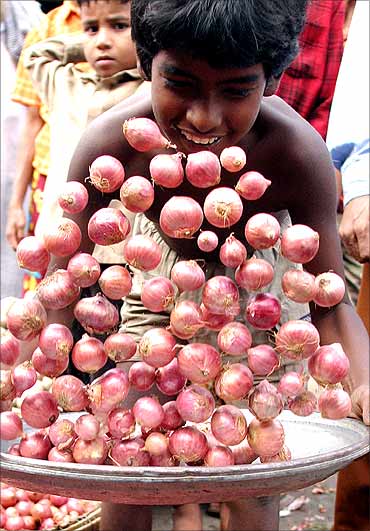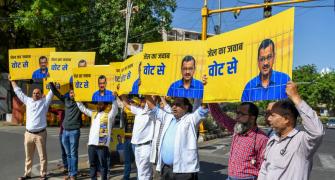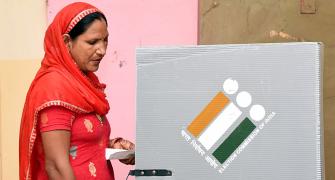
Prices of agricultural commodities have declined by up to 12 per cent so far this month, on prospects of a good output this kharif season, after better than expected monsoon rain and more sowing.
Soybean prices are down 10 per cent to Rs 3,591 a quintal at the Indore mandi.
Chana is down 12 per cent to Rs 4,205 a qtl in Delhi. Jeera prices in Unjha (Gujarat) have slipped 11 per cent to Rs 16,475 a qtl. Other commodities have behaved similarly.
According to Union agriculture ministry data, the total area sown till last Friday was 16.56 million hectares, up 23 per cent from the same time last year. This had picked up after the spread of rain.
Pulses' sowing moved up by 80 per cent and that of cereals and oilseeds by 15 per cent and 427 per cent, respectively.
After the deficient monsoon rain forecast by India Meteorological Department, first at 93 per cent of the long period average in April, prices had begun moving up.
More so after a downward revision in the forecast to 88 per cent of the LPA.
“Commodities markets had rallied too much in anticipation of deficient monsoon rain.
They're correcting now, as monsoon rainfall has remained favourable, which revived sowing of the kharif crop and the battered prospects of agri production,” said Ajay Kedia, managing director of Kedia Commodity, a city-based commodity trading firm.
Private weather forecasting agency Skymet has reported 88 per cent of the cultivable area had normal or excess rain in June. From June 1 to June 25, central India was surplus by 55 per cent and the northwest by 27 per cent.
In peninsular India, it was surplus by 30 per cent, it said.

“Our scenario analysis suggests bajra, jowar and rice are highly impacted with the rain, as they are mainly sown in rainfed areas.
"Edible oilseeds, pulses, sugar and cotton can be sown in irrigated land and are less impacted by a lesser monsoon.
"We believe pulses acreage could remain higher amid better prices.
"Lower prices last year for cotton and sugar might discourage the farmer from sowing.
"In case of (an adverse weather disruption) coarse cereals production could fell by five to 10 per cent but in case of a normal monsoon, could jump by eight to 15 per cent.
"In the same way, oilseed production could fall 10 per cent or jump 14–20 per cent,” said Jagdeep Grewal, Director, Kunvarji Commodities.








